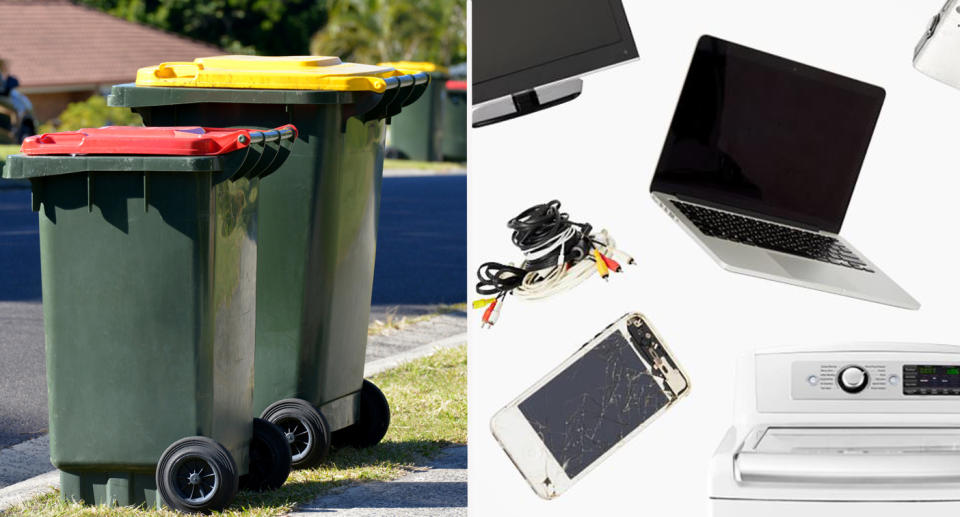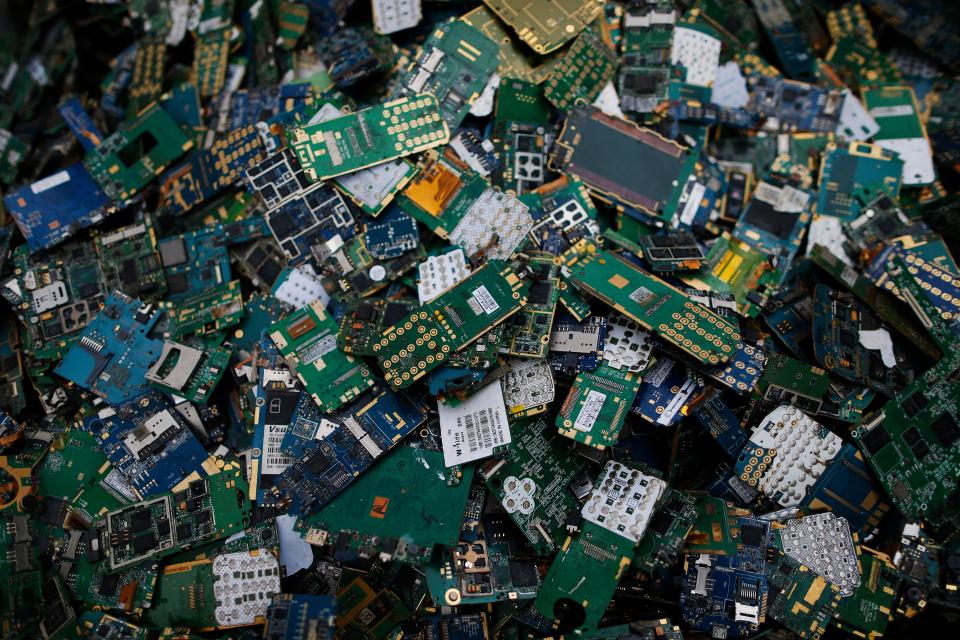'It's a really big change': New recycling laws come into effect on Monday
From Monday, Victorians are facing big changes to what they can put in their bins.
Households will no longer be able to simply dispose of many household items as sweeping changes come into effect designed to tackle Australia’s growing e-waste problem.

The state government has enacted a ban on electronic waste making its way to landfill, meaning a whole plethora of items including things like kettles, electric toothbrushes, hair straighteners, phones and laptops will need to be taken to a dedicated drop-off point.
What can’t I put in the bin?
“An easy way to think about it is anything with a plug, a battery or a chord,” says Katie Pahlow from Sustainability Victoria.
“That can be really small stuff like your electric toothbrush, hair dryer or any kids toys with batteries in them ... it’s a really big change.”
The ban covers all electronic devices that are increasingly common in the home like old smartphones or TV monitors, as well as larger appliances and white goods.
“It’s also your big stuff like fridges, microwaves and vacuum cleaners,” Ms Pahlow explained.
Why the change is happening
As a waste stream, e-waste is growing up to three times faster than general municipal waste in Australia, according to the Environmental Protection Authority Victoria.
It’s a problem that affects the whole country. Without significant measures to reduce it, Australia’s e-waste will increase from around 138,000 tonnes produced in 2012-13 to 223,000 tonnes in 2023-24.

At the heart of the issue are the harmful effects that stem from disposing electronic items in landfill, which can leak hazardous toxins into the air, soil and waterways.
Advocates also point to the value - both economically and environmentally - in reusing the precious materials that are vital in electronics.
“A lot of the things in these material are really valuable. There’s gold, zinc, lead, cadmium,” Ms Pahlow said. “All of those things can be re-worked into something valuable again.”
It also means there is less demand for new mining operations to source raw materials.
Where can I take my e-waste?
The Victorian state government has invested more than $15 million in local infrastructure ahead of the changes. It says 98 per cent of residents in metropolitan areas will be within a 20-minute drive of an e-waste disposal point.
Smaller items can be dropped off at certain OfficeWorks stores, and the existing network of electronic recycling programs like Mobile Muster have been bolstered to handle growing demand.
You can see a full list of Victorian e-waste disposal points here.
How e-waste is treated in other states
To stop e-waste becoming the world’s next plastic pollution problem, sustainability groups hope all Australian states and territories will adopt similar bans in the future.
South Australia banned e-waste from landfill back in 2013, becoming the first state in the country to do so.
Other states and territories have their own schemes, both private and government-led, to maximise electronic recycling and are expected to bring in similar landfill bans in the future.
“It’s a worldwide trend,” Ms Pahlow said. “In Victoria we’re trying to get ahead of it.”
Do you have a story tip? Email: newsroomau@yahoonews.com.
You can also follow us on Facebook, download the Yahoo News app from iTunes or Google Play and stay up to date with the latest news with Yahoo’s daily newsletter. Sign up here.



